Eco-Friendly No-Brainers in the Garden Center
Q Everybody is talking about sustainability and being eco-friendly. What can a garden center operator do to help meet the consumer’s “green” demands?
With so much buzz about the environment in the media, this spring is the perfect time to trumpet your garden center as the “green center” for your customer’s lawn and garden needs. And while it may seem obvious that people would make the connection that planting trees, shrubs and flowers is the natural way to improve the environment, more often they could use some help to connect the dots. After all, what’s greener than planting something? Those who are looking for greener ways to live need to know that your garden center has eco-friendly products. There are several ways you can provide them with information and ideas to encourage them to choose your business as their source for green solutions.
The Lure
Start with a little marketing. If you are already buying ads or sending out flyers about your spring specials, include some information with an environmental message, such as, “Did you know that planting a tree helps stop global warming?” Or appeal to their desire to protect their families, with a statement like “We offer green products that are safe to use around children and pets.” The environmental trend is also tied to the organic food trade, so invite customers to grow their own organic produce.
Many people are getting the message that their rising food prices are tied to the increased fuel costs to truck in groceries, so you might also want to remind customers to “Cut your grocery bill by growing your own food.” Encouraging parents to get their children interested in gardening may also draw customers to your store. So let them know that you provide “Plants that kids will love to grow.”
The Hook
Once you attract customers who are interested in eco-friendly gardening practices, be sure you make it easy for them to find the products they need. In a recent survey I conducted on my website, the No. 1 complaint that most gardeners voiced about their garden centers was the lack of staff or signs to help them make decisions.
Admittedly, during the busy spring season it’s hard if not impossible to have enough trained employees on hand to answer everyone’s questions, so think about how to display products in a helpful way.
You may want to set up a green zone in your store where a majority of your eco-friendly products are displayed. Place it in a prominent location so your customers know it’s a priority for you. This will funnel those who are interested in these products to a central location. It can also help your staff direct customers to the area.
Some garden centers set up more than one green section to include specific categories of products. One area might display items such as “Water-Wise Choices” with drought-tolerant plants and self-watering containers, water timers, soaker hoses, water bags for trees, etc. Another section could promote “Eco-Friendly Critter Controls,” such as deer netting, catch-and-release traps and other wildlife-repellant products.
The category that seems particularly daunting for customers to sort through is the chemical and fertilizer area. Some store owners prefer to integrate their organic choices along with the more traditional products and then tag the shelves with information about green alternatives to help customers locate the items.
Garden Pharmacy
There are a growing number of green products available in the chemical and fertilizer line, and I would encourage you to ask your suppliers about the options they offer. Take some time to read up on how these products act differently in the garden so you can share that information with your staff and customers. For example, when it comes to fertilizers, organic fertilizers promote microbial activity in the soil that is so important for long, sustained growth in plants.
Your customers might be used to the fast growth that chemical fertilizers often create, but you can help them understand that a slower, steady growth won’t attract pests such as aphids, which are drawn to young, fresh stems. And as you know, much has been written about how home owners who overfertilize their lawns contribute to increased nitrogen levels in water sources. Organic lawn fertilizer reduces nitrogen run-off and provides slow, steady grass growth so homeowners don’t have to mow or water so often. These make great selling points to customers interested in protecting the environment as well as saving their own time, money and effort. There are also several specialty fertilizers for certain plants, such as roses, fruits and vegetables.
When it comes to insect control, some of the more popular green choices are horticultural oils, insecticidal soaps, BT or Bacillus thuringiensis (Bt), botanical extracts such as pyrethrins, essential oils such as rosemary, thyme and clove with repelling qualities, copper barriers to protect plants from slugs and snails, and nontoxic traps such as yellow and blue sticky tape.
There are also plenty of eco-friendly herbicides I use and recommend, such as corn gluten meal as an effective pre-emergent weed control or the good old-fashioned hoe or the newly styled ergonomic weed forks. Neem and other plant-based fungicides have also been found to be effective organic choices.
A Few Unique Ideas
If you want some attention-getting ways to drum up interest in organic solutions, try ladybugs. Ladybugs are capable of consuming up to 50 to 60 aphids per day but will also eat a variety of other insects and larvae including scales, mealybugs, leaf hoppers, mites and various soft-bodied insects. You can order bags of live ladybugs online to be shipped to you. You can keep them refrigerated until you are ready to sell them. Set a bag next to your checkout with a sign that touts their beneficial behavior, and you are sure to get some stir.
Keep customers’ interest in your green products after the spring season winds down by offering Saturday workshops or seminars on environmental topics such as water-saving gardening techniques, eco-friendly pest management, growing a victory garden or native plants. These programs will demonstrate your ongoing efforts to provide information and items to keep their gardens green.



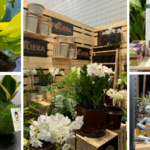


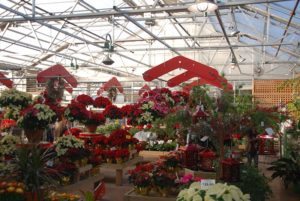
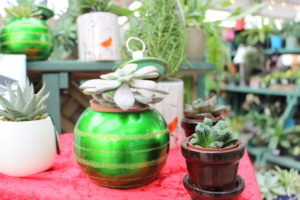
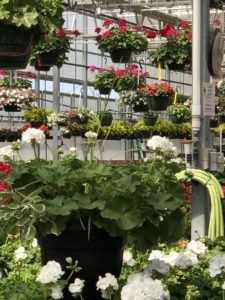
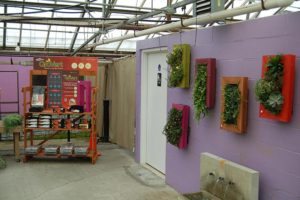
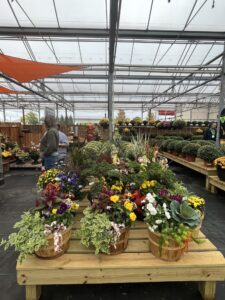
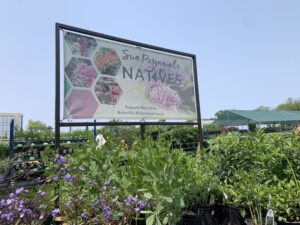
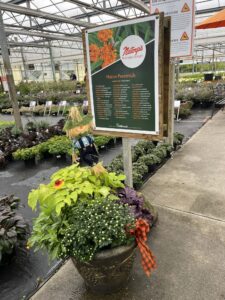
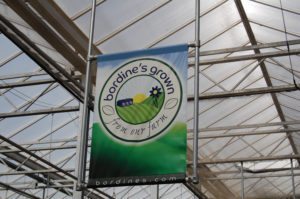
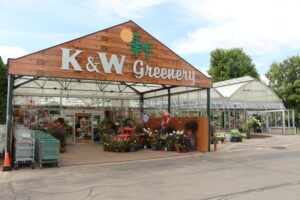

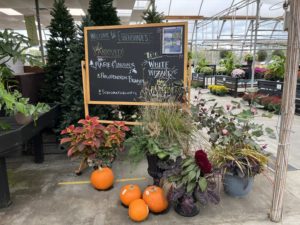
 Videos
Videos





